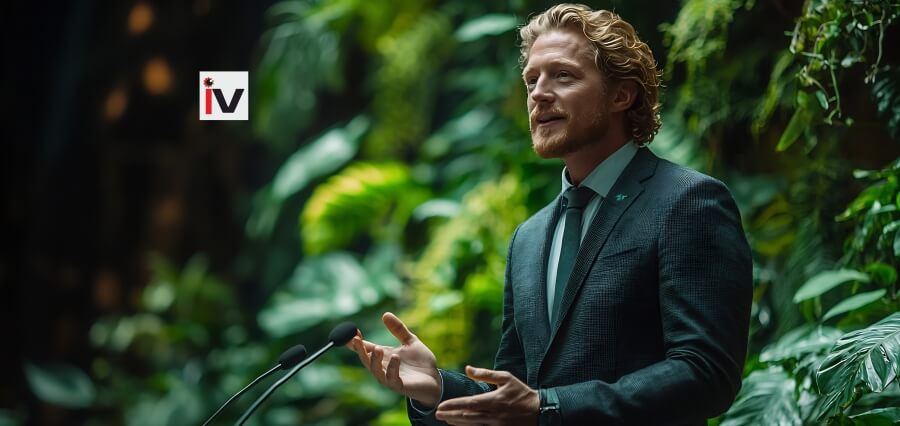In the rapidly changing, competitive business environment of the day, organizations must continue to reinvent themselves in their efforts to last long term. All such reinvention in essence is premised on the philosophy of effective leadership, a leadership that not only inspires teams and strategies but also drives change, resilience, and meaningful advancements. Inspirational leadership is not management and power, but the ability to influence vision, build stakeholders, and cultivate a development culture, ethics, and sustainability. Whereas businesses wrestle with more complex issues such as climate change, technological disruption, and global competition, the importance of leadership in sustaining growth is more pressing than ever before.
Inspirational leadership is founded on the ability to inspire and mobilize others to common objectives. As opposed to reward- and punishment-based transactional performance-oriented leadership, effective leaders believe in trust, values, and vision. They also work together with employees at a more intimate level, which increases autonomy, imagination, and co-responsibility. This type of leadership is most appropriate for establishing sustainable growth rooted in ownership and long-term views in organizations. Good leaders who lead by integrity and not dominance navigate organizations through change but do not change the very essence of the organization.
“Strategic decision-making” is perhaps the most significant manner in which effective leadership impacts sustainable development. Effective leaders are able to see direction in the future in the market, spot opportunities for growth, and are able to absorb risk. Such leaders promote teamwork, applying the potential and creativity of varied groups of people to create plans that are creative and sustainable. They reconcile short-term and long-term objectives in the process, ensuring that short-term victory doesn’t offset future sustainability. They also respond to stakeholder communications, cognizant that sustainable development is as much an issue of customer, employee, supplier, and community relationships as it is of profit margins.
Culture is at the core of organizational transformation and growth, and great leadership is frequently responsible for transformation of culture. Leaders define what behavior is desired and rewarded. If leaders regularly exhibit accountability, compassion, and doing the right thing, these characteristics become part of the culture in the organization. Strong, healthy culture results in employee resilience, innovation, and engagement, all drivers for long-term growth. When employees sense their leaders having vision and values in common, they emotionally and mentally become attached to the purpose of the firm.
Sustainability, care for the environment, and long-term sustainable business growth are hallmark issues of organizations. A leadership position is assumed by individuals who bring sustainability into the core of a firm’s activities and not as an appendix. These leaders prefer policies that reduce environmental impacts, promote social justice, and have good governance. They understand that sustainability is not a matter of compliance or image but about creating enduring buildings and practices. They use the business case for sustainability, demonstrating how sustainable practices will be innovative, cost-effective, and new market-opening. In talent development, leadership is as good.
A motivated and empowered workforce is not possible without sustainable development, and quality leaders are committed to nurturing talent. They invest in career development, mentoring, and coaching, which allows individuals to integrate personal and organizational objectives. This leads to a learning culture where individuals are encouraged to grow along with the business. By establishing psychological safety and risking within safety nets, effective leaders build a culture in which the employee feels comfortable challenging the status quo and introducing new ideas to the room that can get the organization started. During times of crisis and uncertainty, effective leadership becomes increasingly vital.
Riding economic, technological, or social revolutions, great leaders create stability through clarity, empathy, and action. They shoot straight, build confidence, and alter procedure without compromising core values. This stability does not only de-emphasize the immediate impact of crises but also positions an organisation for future resilience. These organisations, with such a leader, are likely to come out even stronger, having utilized crisis as a fuel for innovation and cultural reinforcement. Another exceptional leadership trait is that it establishes and reinforces trust.
In a time where stakeholder opinion and public perception can change overnight, trust is something that must be valued. Good leaders work hard to gain people’s trust through honesty and consistency, accountability, and transparency. A promise made is fulfilled, mistakes are owned, and deals are done in the open for all to see. This type of trust is also extended to investors, customers, and trading partners alike and goes to make the company’s reputation and make people loyal. Trust organisations recruit more talented employees, enjoy longer-term relationships, and perform better in a range of different ways. Also to be remembered is the fact that transformational leadership is not only the CEO’s or the top management’s responsibility.
CEOs and senior managers set direction, but middle managers and team leaders actually reinforce values and strategies down through the business. Building influential leadership throughout all levels of business enables the need for sustainable growth not to be in the cupboard at the top but to percolate through each function and level of the business. Distributed leadership in this way enables decision-making to be more responsive and enables the business to respond to change. In general, influential leadership is a driving force in moving organizations toward sustainable growth. It encompasses vision, empathy, strategic vision, and moral commitment to enable organizations to change without compromising values.
With the challenges of the new business landscape mounting further in terms of complexity, companies have no choice but to make investments in leadership development of leaders who inspire and not control, lead and not dictate. These are the leaders who will be able to create lasting cultures, create innovation, and create lasting value—not just for shareholders, but for society. The future of green business is not cleverer strategy or stronger technology, but resilience and vigor in its leaders.


1 comment
[…] Understanding the Impact of Influential Leadership in Driving the Organizations Towards Sustainable… […]
Comments are closed.